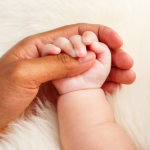Romantic breakups are heart-wrenching; some say friend breakups hit even harder. Whether a childhood friend whom you have known for years or a newer friend from adulthood, losing someone you once cared about is never easy. Friendship breakups happen from mistrust, unresolved conflict, distance, poor communication, assumptions, lacking boundaries, misaligned values, ego battles, or simply circumstances changed. Friendships that were seemingly going well may slowly end without a clear explanation. Friendships often pass through different stages, and accepting when two people have drifted apart is discouraging.
Nonetheless, experiencing grief and loss that a friendship has ended may lead to insecurity about what you’ve done wrong, what could have gone differently, and feeling at fault. Endings can be even more challenging for adolescents and teenagers, as one’s identity and sense of self are still developing. Friendship breakups can feel isolating in adulthood due to the structured work routine, home, eating, sleep, repeat, and finding it challenging to explore a community where you may meet new friends. Coping with loss means working toward radical acceptance and providing yourself with needed closure.
Denial is usually the first stage in processing a friendship coming to an end. It’s hard to pinpoint the ending, especially if it happened gradually over time. Believing that the friendship ending is untrue or refusing to accept this reality delays the heavy emotions that follow the denial stage. Younger adolescents may experience denial for long periods out of a desire to remain within friendships that no longer serve them. There is also intense fear of being excluded or neglected by peers, which may lead an adolescent to be complacent in denial out of fear of what is to follow. Adolescents are repeatedly exposed to old friends within a school, sport, or social setting, which makes it more challenging to face reality. Adults often have more control over their social environments and can choose who they are around, which allows time for deeper reflection regarding the friendship during that interim period. Adults often have developed emotional regulation skills to manage the pending distress after recognizing that a friendship is over.
It’s common to begin bargaining with self or the person on the other end of the friendship. Negotiating aspects of oneself or the friendship to hold on tighter delays the ending. During this time, people may be willing to compromise or even sacrifice their boundaries and standards to save the friendship, even at the expense of personal needs and desires. Adolescents are more susceptible to bargaining resulting from self-doubt, insecurity, low self-esteem, and fear of being alone. You may be challenging codependent behaviors after a friendship of depending on them, doing daily activities together, and leaning on them for comfort. Significant emotional support is needed during this vulnerable stage to maintain your self-worth when experiencing loss. Adults will also feel the urge to maintain a friendship or make a last effort to repair it, even when it doesn’t feel right. Feeling rejected or betrayed during this stage is expected since the person on the other end may not be receptive to your attempts to negotiate. Rejection may trigger the abandonment wound and lead one to begin feeling overwhelming sadness, frustration, anger, loneliness, distress, and confusion.
These emotions are daunting, especially when you feel isolated through this experience. Feelings of depression may creep in with lower motivation, existential dread, avoiding social gatherings, and not feeling fulfilled in daily life tasks. These symptoms may be more intense for adolescents due to uncontrolled environments in school settings and relearning how to co-exist within shared environments without that friendship. Adults may also go through this relearning process if there are shared environments with this past friend, such as a workplace, mutual group gathering, etc. Part of the relearning process also means acknowledging the negative feelings that arise alongside the depressive symptoms. During this stage, I encourage you to feel the emotions. When you sense the sadness creeping in after seeing an old friend in public, allow yourself to sit with the feeling of sadness, process it, and cope with it in the healthiest ways you know how. Similar to anger, feel the anger, process your triggers, and lean into distress tolerance skills to cope most appropriately. When you suppress and ignore the emotions, they aren’t taken care of in a loving or nurturing way. Compartmentalizing your emotions will dismiss them, unconsciously invalidating the process you’re experiencing. Give yourself grace and begin to move forward with compassion for yourself.
There may be periods where you go without thinking of this past friend, and then you hear their name, see a photo of them, or have the urge to share an experience that you know they’d find funny. The pit in your stomach is back, and you experience mourning for the friendship that was once there. You may even have the itch to reach out to them again, see how they’re doing, or share that they were on your mind. Before reacting to emotion, take a moment to pause and practice mindfulness. Be present at that moment and reflect on the reasons the friendship was unsuccessful in the past. Journal the thoughts or experiences you want to share and read them aloud alone. Coping via mindfulness will allow you to embrace your feelings and navigate back peddling effectively.
When you reach the stage of true acceptance, you learn that conflicting emotions can co-exist. You also understand that grief is an ongoing process with no clear rulebook. You can miss the friendship and appreciate the memories with that friend while accepting that person is not the right fit for where you are in life right now. It’s productive to have a moment of introspective reflection to build self-awareness and notice areas that are worth improvement on your end. There are two people within friendships; take responsibility for parts within your control and release the remaining self-blame, inner critic, and anxious thoughts about what could have been. Remember your self-worth, core values, and boundaries as you navigate existing friendships, and continue to reflect on friendships worth keeping.
References:
https://gatewaytosolutions.org/how-to-help-teens-with-conflict-resolution/
https://gatewaytosolutions.org/understanding-grief-and-loss-in-teens-pre-teens/
https://www.womenshealthmag.com/life/a31159869/friendship-breakup/
https://dialecticalbehaviortherapy.com/distress-tolerance/tipp/
https://www.psychologytoday.com/us/blog/prisons-and-pathos/202106/how-handle-friendship-breakup
https://time.com/5402304/friendship-breakups-worse-romantic/



